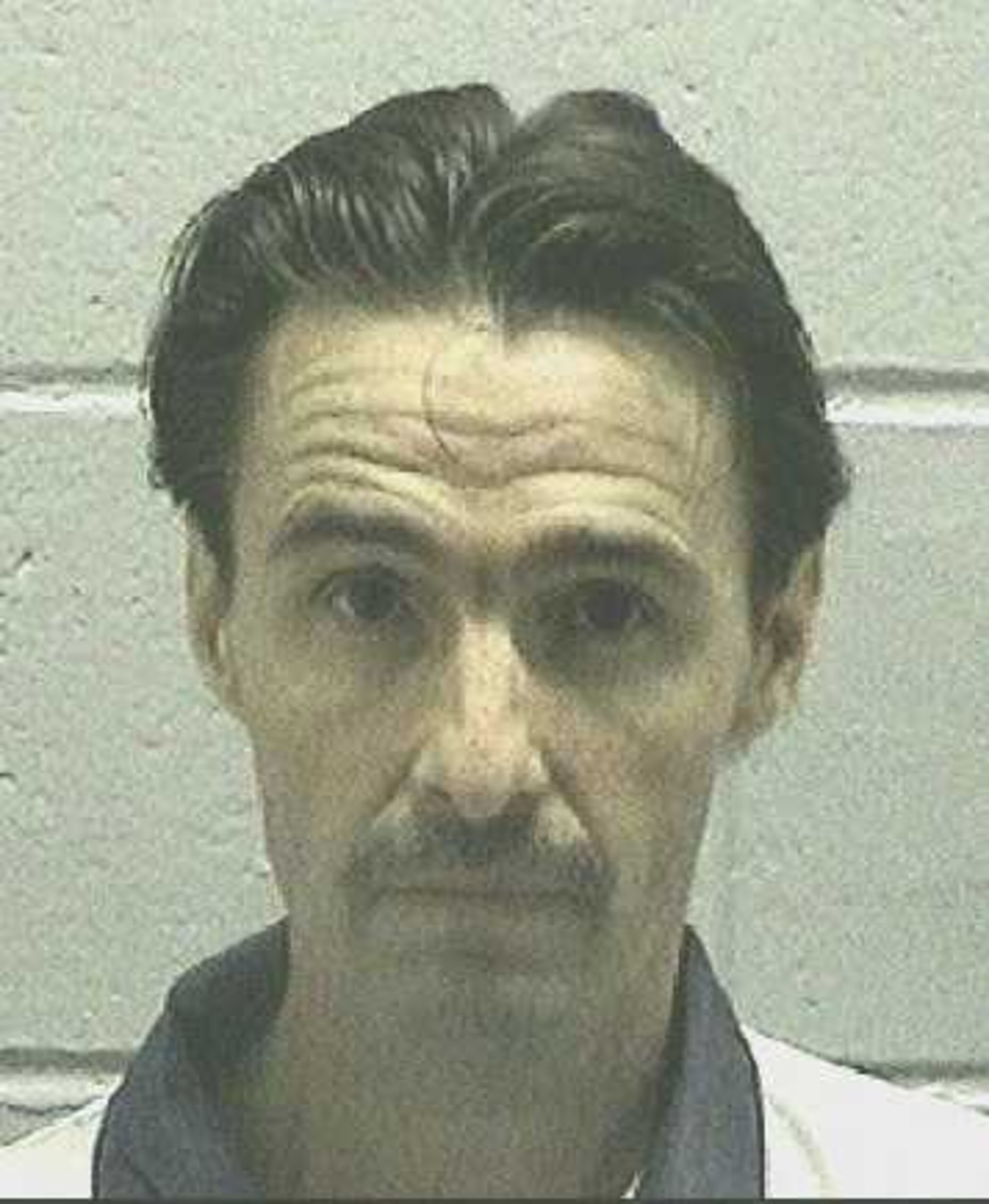Georgia killer to those viewing his execution: ‘You can kiss my …’

J.W. Ledford Jr., the 45-year-old murderer who became the first inmate executed in Georgia this year, went to his death defiantly early Wednesday, mocking those who had come to witness his lethal injection.
Ledford was on the gurney, smiling broadly, as witnesses were escorted into the observation area of the death house at the Georgia Diagnostic and Classification Prison in Jackson. It had been a long wait. The U.S. Supreme Court took roughly five hours to weigh Ledford's last-ditch effort to avoid the needle.
» INTERACTIVE: The faces on Georgia’s Death Row
» GALLERY: Who has been executed in Georgia since 1976 and their victims

The warden asked Ledford if he would like to say some final words, as is the practice.
“I would. I certainly would,” Ledford responded. “How long do I have?”
He then paraphrased the iconic line from the classic Paul Newman prison movie “Cool Hand Luke.”
“What we have here is a failure to communicate. Some men you just can’t reach,” Ledford said. “I am not the failure. You are the ones with the failure to communicate. You can kiss my white-trash ass.”
Ledford then chewed his lip, looked around the room, and repeatedly exaggerated an already broad smile as the warden read the court’s execution warrant. He spoke as the warden left the execution chamber, but the microphone was switched off after the first word, “If.”
At one point, as the drug was pumping into his vein, Ledford spoke to one of the correctional officers positioned in the corner of the execution chamber, maintaining a broad smile and mugging for the witnesses until unconsciousness overtook him.
He was pronounced dead at 1:17 a.m., punished for the 1992 murder of 73-year-old Dr. Harry Johnston, the neighbor and physician who had delivered Ledford when he was born.
This year's first execution in Georgia comes after a record-setting 2016, when Georgia led the nation by putting nine men to death.
Death penalty opponents prayed for Ledford's soul — and for Georgia's — in protests Tuesday outside the prison and at other locations,including on the steps of the statehouse in downtown Atlanta.
At 7 p.m. Tuesday, the time Ledford had been scheduled to die, anti-execution activists began reading the names of the nearly 70 men and one woman put to death in Georgia since capital punishment was reinstated more than 40 years ago. They began with John Eldon Smith, who was electrocuted on Jan. 15, 1983. It is a ritual that death penalty foes perform at each execution.
Ledford had fought to be executed by firing squad, arguing in court motions that a lethal injection would subject him to excruciating pain because the drug would react badly to medication he had taken for a decade for chronic pain.
But the 11th U.S. Circuit Court of Appeals rejected Ledford’s challenge. Georgia law specifically requires executions by lethal injection.
Ledford also argued that he was exempt from the death penalty because he is intellectually disabled, a contention rejected by previous courts.

Ledford was 20 when he fatally stabbed Dr. Johnston, almost decapitating him with slashes to his neck. Ledford confessed to the killing but said he was drunk and defending himself. Ledford said the elderly physician had slapped him and threatened him with a knife.
Ledford said the doctor was giving him a ride to town on Jan. 31, 1992, when he accused the younger man of stealing from him. Ledford said Johnston turned around and drove the pickup back to his Murray County home. Their argument continued on the side of the garage at his house.
Johnston’s wife, Antoinette, told police she saw her husband drive away midafternoon that day with someone she could not identify in the passenger seat.
A little later, Ledford came to her door, asking for her husband. Ledford told her that he was the son of the woman who had once cleaned the Johnston house.
Antoinette said Ledford came back about 10 minutes later and asked her to tell her husband to come to the Ledford house that night.
Then Ledford came back a third time — but with a knife, she said. He loosely bound her hands and took cash, a shotgun, a rifle and two handguns when he left. She said she saw him drive away in her husband’s truck.
The timing of events is confusing. Brent Poston, the sitting district attorney in Murry County, said it was never made clear whether the doctor was dead by any of the times Ledford came to the Johnstons’ front door.
The doctor’s body was found later that afternoon on the side of the garage.
Ledford was arrested about 30 minutes after he left the Johnston house. By then he had sold the shotgun and the rifle at local pawn shops but still had the cash and Johnston’s two pistols.
Antoinette Johnston died in February.
“She wanted very much to live long enough to see justice served,” Poston said. “All the delays have robbed her of that.”
